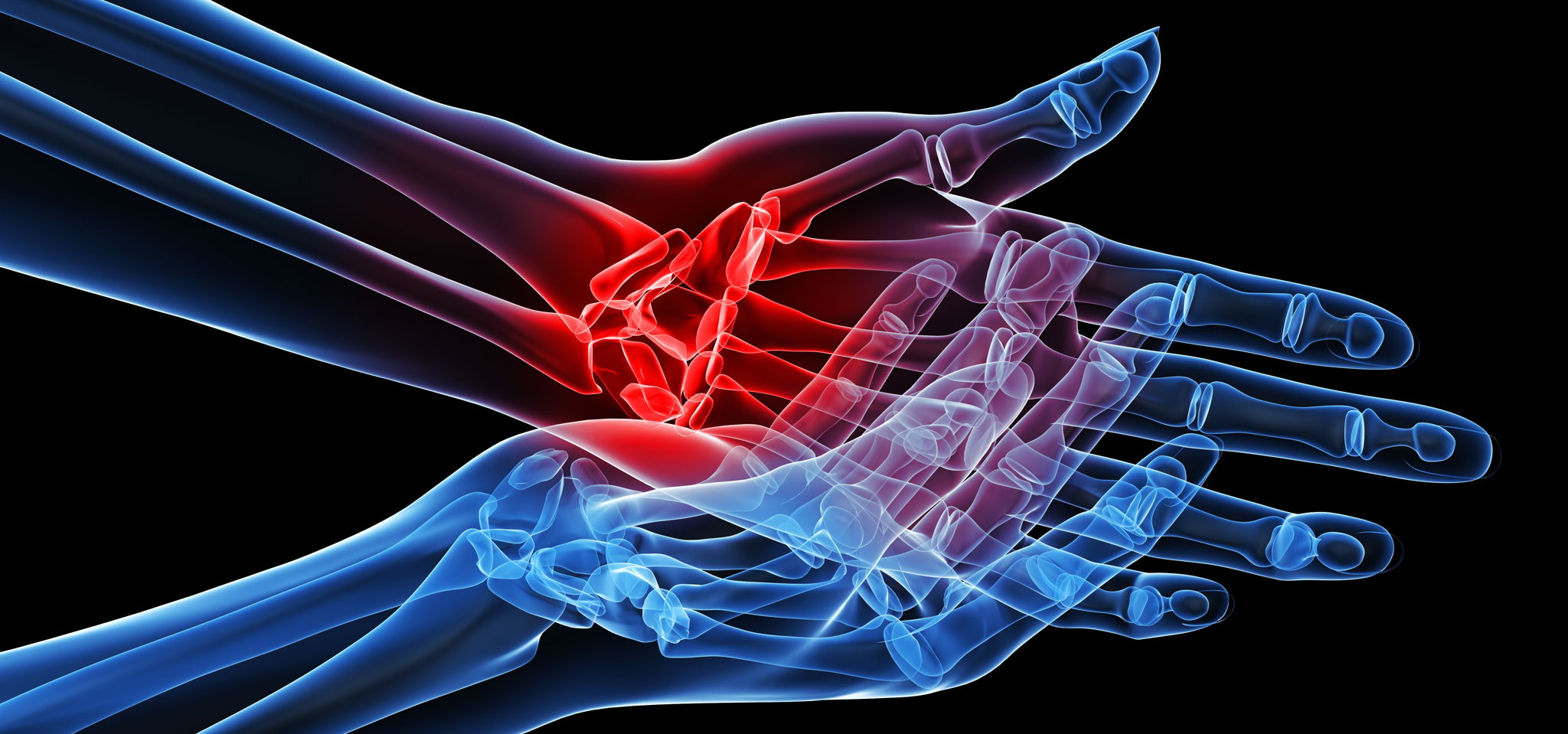Erosion blockade breakthrough: clinical trial signals hope for hand osteoarthritis
Researchers at the Ghent University Hospital, Ghent University, and VIB-UGent Center for Inflammation Research, show that antibody therapy can be effective against erosive hand osteoarthritis. Using the antibody denosumab leads to bone remodeling and the prevention of erosive joint damage. This is the first evidence that erosive progression can be halted in this disease. The results appear in Nature Medicine.
Bones and joints
The erosive type of hand osteoarthritis is a common inflammatory type of degeneration that notably affects the joints of the fingers. As a result, this condition has a high disease burden, resulting in progressive damage and loss of function. While current therapies can alleviate symptoms, they do not address the structural damage in the affected hands.
Recent research, however, suggests that people with erosive hand arthritis have other issues as well. Overall, their bones are thinner and they lose bone and cartilage as the condition progresses, even in bones and joints that are not immediately affected by the osteoarthritis. In other words, rather than being a ‘local’ disease, erosive hand osteoarthritis is a ‘systemic’ bone condition.
Prof. Ruth Wittoek (University of Ghent), first author of the study: “The realization that we’re dealing with a systemic disease prompted us to consider that we may need a treatment that is also systemic. The antibody denosumab is already used to treat osteoporosis and cancer-associated bone loss. Moreover, it was demonstrated that denosumab reduced erosive progression in rheumatoid arthritis, the prototype of inflammatory arthritis, which makes it a great candidate against erosive hand osteoarthritis too.”
Prof. Gust Verbruggen (University of Ghent), co-first author: “We anticipated that by using such anti-osteoporotic medication we could delay the structural progression and therefore focused on the impact of denosumab on progression on X-rays in erosive hand osteoarthritis.”

Antibody therapy
To test the potential of denosumab, the researchers recruited 100 patients with erosive hand osteoarthritis, who were subsequently randomly divided into a treatment and a placebo group – a double-blind, randomized, placebo-controlled trial, which is the golden standard for interventional studies.
Over 48 weeks, the patients received injections of 60mg of denosumab or a placebo every three months. After that treatment period, the people receiving the antibody showed clear bone remodeling and fewer new joint erosions compared to the placebo group. Importantly, the antibody treatment did not lead to more adverse effects.
Prof. Dirk Elewaut (VIB-UGent), senior author of the study: “We provide a proof-of-concept that denosumab can be a valuable tool in the treatment of erosive hand osteoarthritis and show for the first time that inhibiting structural progression is an achievable goal in this disease.”
This study demonstrates that denosumab has positive effects on erosive hand osteoarthritis by bone remodeling and the prevention of joint erosions. This work also supports the concept that erosive hand osteoarthritis is a systemic disease that requires systemic treatment.
Publication
Wittoek, Verbruggen, et al. RANKL-blockade for erosive hand osteoarthritis: A randomized, placebo-controlled phase 2a trial. Nature Medicine, 2023. Doi: 10.1038/s41591-024-02822-0
Questions from patients
A breakthrough in research is not the same as a breakthrough in medicine. The realizations of VIB researchers can form the basis of new therapies, but the development path still takes years. This can raise a lot of questions. That is why we ask you to please refer questions in your report or article to the email address that VIB makes available for this purpose: patienteninfo@vib.be. Everyone can submit questions concerning this and other medically-oriented research directly to VIB via this address.
Gunnar De Winter



